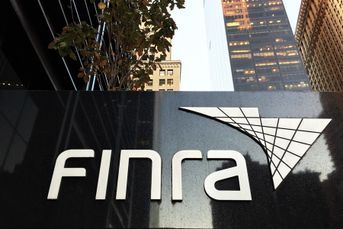Conference Call: Brokers wagering on hedge funds with a new twist
Broker-dealers are raising their bets on a new twist to the latest Wall Street investment craze. Hedge funds…
Broker-dealers are raising their bets on a new twist to the latest Wall Street investment craze. Hedge funds have been getting all the attention lately, and it’s easy to see why: On average, they beat the broad market in both 2000 and 2001.
But registered hedge funds are the newest fashion, and they promise to be even more popular with a broader group of investors.”It’s obviously an area that investors are going to focus on,” says Michael Mattise, senior vice president with Radnor Financial Advisors Inc. in Wayne, Pa., who attended a luncheon on registered hedge funds this month in New York, sponsored by Montgomery Asset Management LLC.
While most other investments are stagnant, or worse, receding in the current economy, brokerages see huge potential in hedge funds.
According to Montgomery Partners, a division of the San Francisco money manager, investors who are less than extremely rich make up an enticing market for registered hedge funds.
Of the 6 million American households with $1 million to $5 million to invest – which Montgomery calls the “lower-end affluent market” – fewer than 7% have hedge funds in their portfolios.
Rather, growth has been in the top end of the high-net-worth market, says Bill Santos, chief marketing officer with Montgomery Asset Management.
Brokerage houses, however, are doing all they can to bring registered hedge funds to the attention of the middling rich. Investors can get into registered funds for $25,000 to $50,000. In contrast, unregistered funds require a $500,000 to $1 million investment.
Registered hedge funds, Mr. Santos argues, also offer layers of protection that traditional, unregistered funds don’t provide.
Advisers must be registered with the Securities and Exchange Commission. For traditional hedge funds, that’s not the case, and registration rules vary among the states.
The SEC also requires the new breed of registered funds to adhere to a code of ethics, and it limits the funds’ borrowing. One-third of a fund’s assets and collateral must be liquid, while traditional hedge funds have no such limits.
Broker-dealers, from New York-based powerhouse Merrill Lynch & Co. Inc. to the large brokerage houses outside of the city, are throwing their hats into the ring.
OFI Institutional Inc., an investment advisory unit of OppenheimerFunds Inc. in New York, registered with the SEC earlier this month to offer up to $100 million of shares in two separate closed-end funds: the OFI Tremont Core Strategies Hedge Fund and the OFI Tremont Low Correlation Hedge Fund.
In February, brokers with Raymond James Financial Inc. of St. Petersburg, Fla., began selling a registered long-short fund of funds managed by CIBC World Markets in New York (InvestmentNews, April 22).
A number of partnerships are coming about as financial services firms move to meet the demand for hedge funds. No stock brokerage wants to be left out.
Montgomery and A.G. Edwards Inc. of St. Louis will be offering a fund of funds through Edwards’ sales force.
Mellon Financial Corp., the Pittsburgh banking and mutual fund company, said earlier this month that it will acquire HBV Capital Management LLC. HBV, which is based in London and New York, is known for investing in the risk-arbitrage and distressed-asset areas.
The “hard part,” Mr. Mattise stresses, is to regard the robust returns of the hedge fund indexes with a critical eye. It’s not the average returns of the managers that matter, he argues, but the wide dispersion of manager performance.
“The potential [for widely varying returns] is greater in that universe than most investors have experience in,” says Mr. Mattise, whose firm manages $350 million.
Questions remain about the new products, including whether they will dilute the market over the next decade. “We will continue to see inefficiencies,” says Mr. Santos. “But in hedge funds, you exploit inefficiencies.”
Learn more about reprints and licensing for this article.








